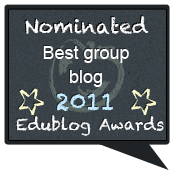I gravitate toward all things inquiry, and today I clicked on a Ted Radio Hour podcast called “The Spirit of Inquiry.” What could be better than jogging and listening to a podcast about inquiry. Geekily…well, nothing.
I’ve been preparing a teacher workshop on Making Thinking Visible and so have been thinking about thinking, so I’ll explore the podcast using a routine called “Connect, Extend, Challenge.”
First, the podcast is about inquiry and how in such a short span of time, we’ve all been able to dig into some pretty big questions. We have access at our fingertips. In the podcast, they play excerpts from different TED Talks and then interview the speakers more in depth about their subject. One speaker that stood out was a professor from Harvard, Naomi Oreskes, who talked about science and inquiry. Her spotlight on how science is really about the inquiry process and consensus.
Connect:
In the TED Radio Hour podcast, I connected immediately to inquiry and how that forms the basis of my teaching. I’ve spent a lot of effort establishing classrooms and a culture where students are safe to ask questions. I model curiosity, use student wonderings and passions as much as possible in my teaching. I was hooked from the title of the podcast and immediately thought about times of inquiry when students dug deeper, moved their learning beyond the classroom and deepened their understanding. And it all starts from a freedom to question and search for answers.
Extend:
When Professor Oreskes spoke, I was fascinated, and now I’m going to also go listen to her Ted Talk about “Why We Should Trust Scientists.” Her question was “Why should we trust scientists?” Back to connection, I thought about climate change, vaccines, etc…current trending topics and how there’s debate about the science behind it. There’s a distrust of scientists.
What Professor Oreskes discusses is that we think of science as the scientific method and that’s it. Scientists test their hypothesis, and they’re finished. As a result, we seem to quickly dismiss a scientific theory. However, she says that consensus and building consensus is the key to science and that it takes a long time. Once one scientist comes up with data and a theory, then someone else tries it to also prove or discredit it. What’s right with science, she says, is that scientists either prove or disprove conclusions. After a long time, if a theory is proven correct by many, then there’s consensus, and science moves on to the next question. She implies that this continual inquiry process, where a question is raised, evidence given, sorted out, reflected upon and questioned again…is science.
Doesn’t that sound a lot like the inquiry process?
Scientists are people who judge evidence with scrutiny, she says. Doesn’t that sound like critical thinking that we all want to develop in our students? Scientist judge evidence as a group also and they do it with distrust, she continues. Scientific knowledge is about the consensus of experts who have carefully scrutinized data. Isn’t that what we want for all of our students?
I am continually in awe of how we avoid “science” in the PYP curriculum. Yet, I’m also wondering if the most important thing we’re teaching children is how to question and a process they can use to find the answer–that we’re teaching science every day. Furthermore, we really are teaching what’s important in science and that is consensus…collaboration in working through problems and seeking a truth.
Challenge
Now, I’m challenged to think of how to bring these thoughts explicitly into our school culture. How do we not force a “science” unit into our six units, really thinking just of scientific knowledge: how machines work, the differences between kinetic and potential energy. Yes, knowledge is important, but isn’t thinking as a scientist, a mathematician just as important?
If science is inquiry and consensus, then why do we repeatedly hear that we aren’t teaching “science” in a PYP school? How can we change our school cultures of thinking so that everyone–from students to parents and teachers and administrators–understand that we are thinking and acting as scientists every day.


Ooooh. Thanks so much for this Kristen – I will be listening to this one for sure!
LikeLike
Nail. Head. Hit. “Yes, knowledge is important, but isn’t thinking as a scientist, a mathematician just as important?” Hi Kristen. I’m Jane and I could not agree with you more. It occurred to me in 2001 that my MYP1 science students could have, before meeting me, benefitted from more exposure to thinking like a scientist. My PYP colleagues shared their reluctance to embrace science in a way that resonates with your last paragraph under ‘Extend’. Since 2005, I use my weekends to visit elementary schools and get teachers up and playing with 15-minute activities that 1. Invite students to inquire into science thinking 2. Explicitly teach students how to think the way you describe, focussing on the science thinking NOT science content. For my day job I teach DP Chemistry and MYP Sciences in Bangkok – not so far from Bangladesh – give me a shout if you see the possibility of a connection. Please check out my website with participant testimonials.
LikeLike
My website is About designing inquiries that create the need to know http://www.createtheneedtoknow.com/
LikeLike
The Madhyamik Shiksha Mandal has published the High School Level latest edition E-Book for all subjects of Class 9th & 10th standard designed by SCERT & NCERT, various government and private schools of the board has followed both NCERT & Non-NCERT books to the Secondary Education, and the UPMSP 9th & 10th Class E-Textbook 2021 Pdf also download available from both publishers. UP 10th Textbook 2021-2022 Everyone can download the NCERT UP Board 9th & 10th Class Textbook 2021 from the official website of the portal, and the direct download links also shared below, and the Non-NCERT books are published at their UPMSP portal and the links also shared along with the downloading process.
LikeLike